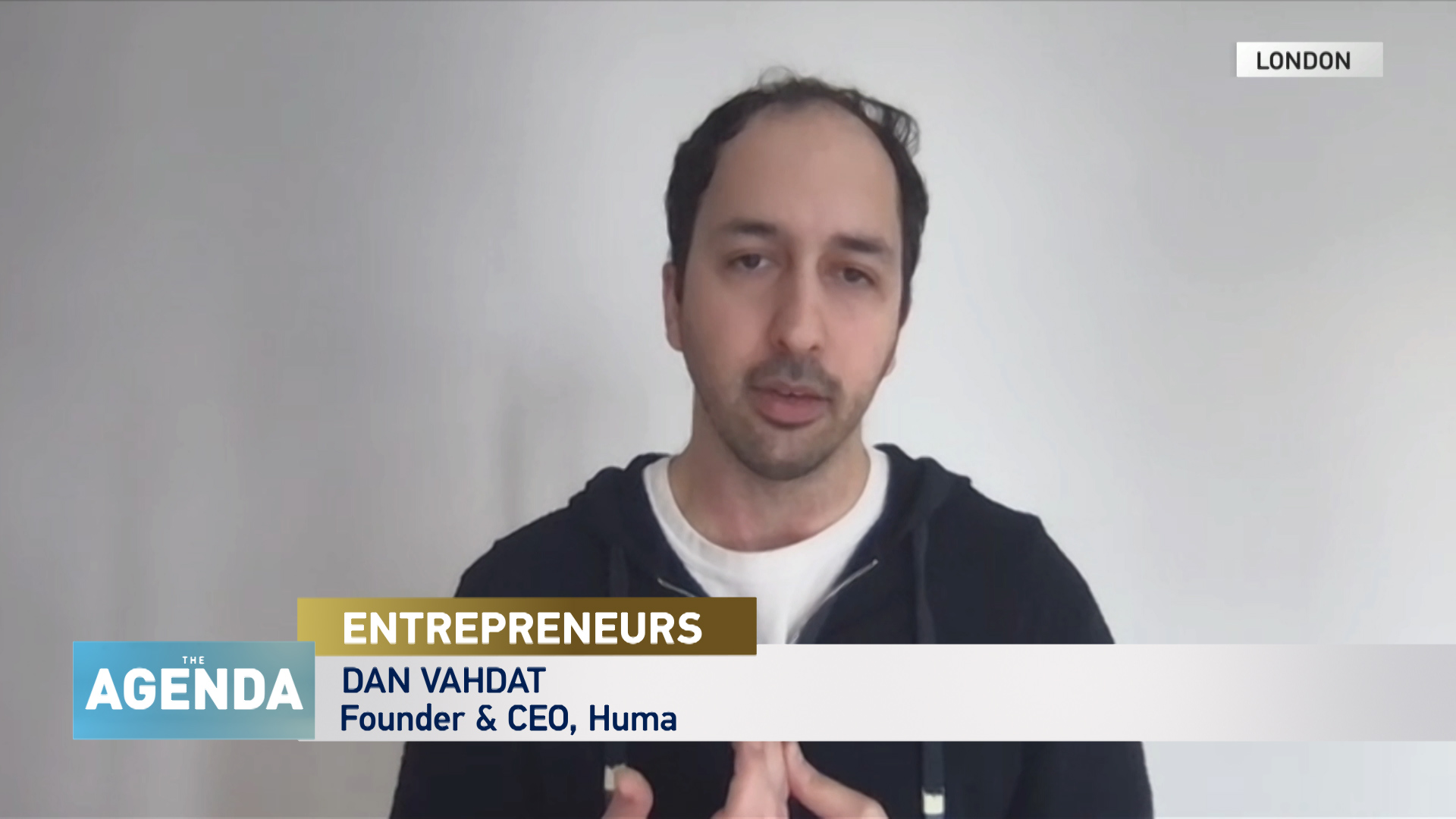06:35

Digital health entrepreneur Dan Vahdat says his company could potentially halve the number of COVID-19 patients being treated in UK hospitals.
Interviewed on CGTN's The Agenda, London-based Vahdat explained to host Stephen Cole how Huma uses artificial intelligence to "democratize healthcare." It uses existing technology, such as smartphones and smart TVs to collect health data and share it with clinical specialists, removing the need for patients to spend days in hospital.
"Our technology can almost double a hospital's capacity in a matter of weeks," he said. This is proving vital during a pandemic when healthcare systems across the world have come under enormous pressure.
At the start of the pandemic, Huma was approached to work with the NHS's digital transformation unit to launch remote monitoring services for patients in their homes.
Huma's Medopad platform uses wearable devices and other sensors to allow doctors to monitor their patients' health remotely, without them having to come into a doctor's surgery or a hospital.
Vahdat told Cole: "We bring the hospital to your home through technologies like mobile phones and 400 different devices we are integrated to. We can collect the essential data that is potentially needed to manage your disease. All that data goes to the clinical team, who have a real-time view of what's happening to you and they only intervene when they see something is going wrong."
Regarding himself as an accidental entrepreneur, Vahdat believes Huma's success will prove the case for digital health solutions to be adopted across health services.
"The pandemic enabled us to have the kind of impact as a company we always dreamt of," he said. "The idea of launching national deals was [previously] unimaginable in such a short time frame."
Vahdat was awarded CEO of the Year at the WEBIT 2018 Global Summit and participated in a 2018 UK state visit to China, during which he met President Xi Jinping and helped strike $140m worth of deals to improve Chinese patient care.


